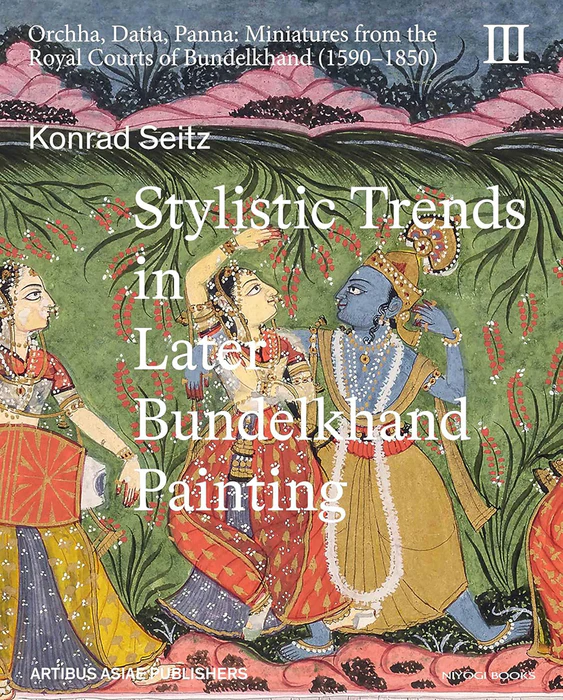
Stylistic Trends in Later Bundelkhand Painting: Orchha, Datia, Panna - Miniatures from the Royal Courts of Bundelkhand (1590-1850)
Ships in 1-2 Days
Free Shipping in India on orders above Rs. 500

Ships in 1-2 Days
Free Shipping in India on orders above Rs. 500
This lavishly illustrated book, the third and final volume in the series Orchha, Datia, Panna: Miniatures from the Royal Courts of Bundelkhand, deals with the third, fourth, and fifth periods of Bundelkhand painting, which spans the years 1635 through 1840. It begins with the Mughalizing painting styles that predominated in Datia after the disintegration of Orchha in 1635 and the rise of Datia as an independent principality and major cultural center. It also addresses the development of Bundelkhand painting after 1675, when Raja Chhatrasal established Panna as the capital of his Bundela kingdom. Bundelkhand painting ceased with the raja’s death in 1731, and it was only after a long interruption that it experienced an Indian summer at the court of Datia during the period of British suzerainty in the nineteenth century. However, the style of the latter era no longer bore a resemblance to the Datia and Orchha schools of the seventeenth century, but was rather an offshoot of the prevailing Mighal-Rajput style developed by painters who had left Delhi in the second half of the eighteenth century. Through stylistic analyses and interpretations of more than ninety paintings from his collection, many of them published here for the first time, the author provides a rich insight into the many and varied developments of later Bundekhand painting. About the Author: The author, late Dr Konrad Seitz (1933-2023), diplomat, historian, and art collector, lived for many years in India where he served as German ambassador from 1987 to 1990. He and his wife, Eva Seitz, rank among the most important private collectors of Indian miniature paintings worldwide. Their readiness to share their collection with art lovers all over the world, both in publications like this one and through major donations to museums, has done much to enhance our appreciation of the marvels of Indian painting.